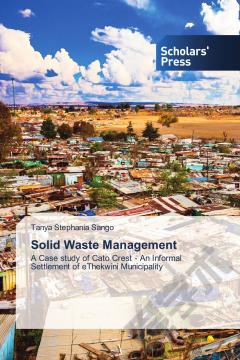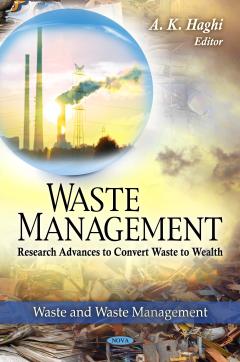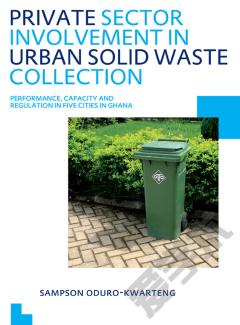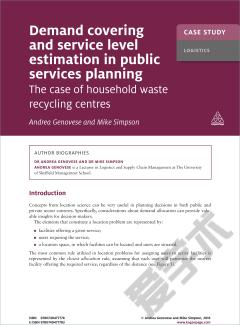Solid Waste Management —— A Case study of Cato Crest - An Informal Settlement of eThekwini Municipality
----- 固体废物管理:以斯奎尼市非正式居民点为例
Waste generated by daily human activities and left to accumulate in ubiquitous, illegal, unregulated dumpsites close to dwellings, is a problem in informal settlements. If not collected and appropriately disposed of, it poses risks to public and environmental health. The quality of life and living conditions of those that already suffer deprivation due to living in informal settlements are further compromised. Waste services provided by local government are generally not adequate in informal settlements. Many municipalities struggle to provide even the most basic services to contain solid waste in these areas due to a lack of infrastructure and financial resources. This book sought to determine the efficacy of current solid waste management in enhancing living conditions in informal settlements in Ethekwini Municipality. The functionalism theory, neoliberalism theory, and communicative planning theory provided the theoretical background for the study and enabled an understanding of the role of different stakeholders in the management of solid waste in informal settlements.
{{comment.content}}








 京公网安备 11010802027623号
京公网安备 11010802027623号